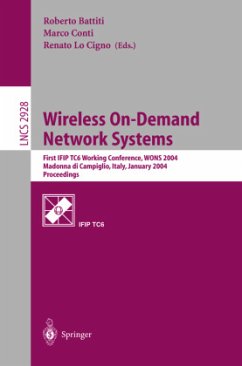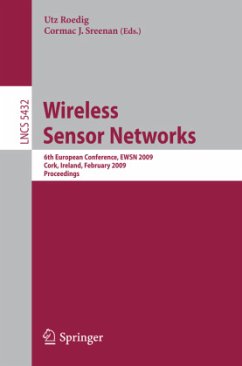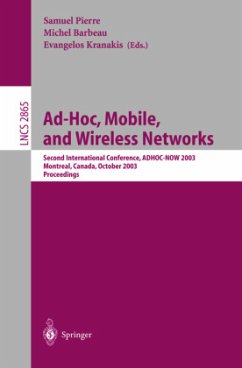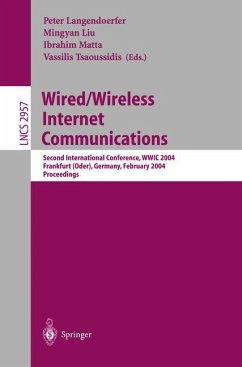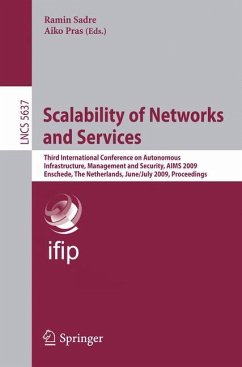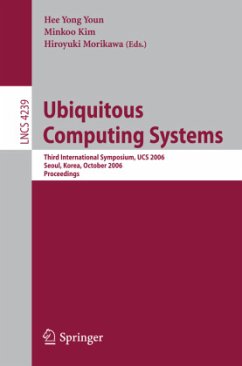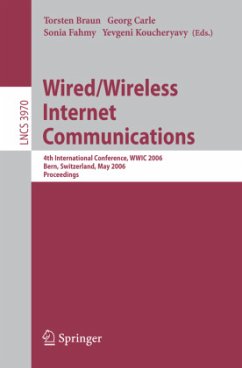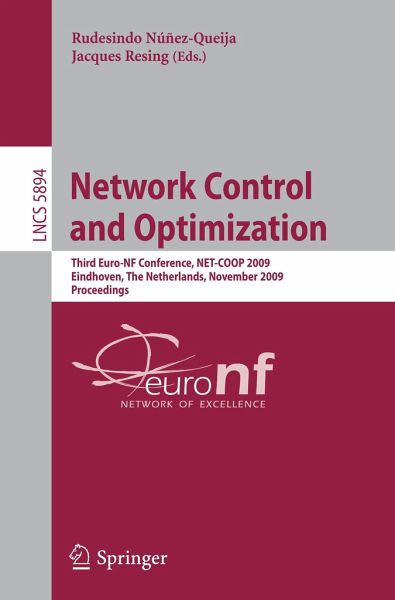
Network Control and Optimization
Third Euro-NF Conference, NET-COOP 2009 Eindhoven, The Netherlands, November 23-25, 2009 Proceedings
Herausgegeben: Núñez-Queija, Rudesindo; Resing, Jacques

PAYBACK Punkte
19 °P sammeln!
We are proud to present the proceedings of NET-COOP 2009, the inter- tionalconferenceonnetworkcontrolandoptimization,co-organizedbyEURAN- DOM/Eindhoven University of Technology and CWI. This year's conference at EURANDOM, held November 23-25, was the third in line after previous e- tions in Avignon (2007) and Paris (2008). NET-COOP 2009 was organized in conjunction with the Euro-NF workshop on "New Trends in Modeling, Quan- tative Methods, and Measurements. " While organized within the framework of Euro-NF, NET-COOP enjoys great interest beyond Euro-NF, as is attested by the geographic origins...
We are proud to present the proceedings of NET-COOP 2009, the inter- tionalconferenceonnetworkcontrolandoptimization,co-organizedbyEURAN- DOM/Eindhoven University of Technology and CWI. This year's conference at EURANDOM, held November 23-25, was the third in line after previous e- tions in Avignon (2007) and Paris (2008). NET-COOP 2009 was organized in conjunction with the Euro-NF workshop on "New Trends in Modeling, Quan- tative Methods, and Measurements. " While organized within the framework of Euro-NF, NET-COOP enjoys great interest beyond Euro-NF, as is attested by the geographic origins of the papers in these proceedings. TheNET-COOPconferencefocusesonperformanceanalysis,controland- timization of communication networks, including wired networks, wireless n- works, peer to peer networks and delay tolerant networks. In each of these domains network operators and service providers face the challenging task to e?ciently provide service at their customer's standards in a highlydynamic - vironment. Internet tra?c continues to grow tremendously in terms of volume as well as diversity. This development is fueled by the increasing availability of high-bandwidth access (both wired and wireless) to end users, opening new ground for evolving and newly emerging wide-band applications. The increase in network complexity, as well as the plurality of parties involved in network operation, calls for e?cient distributed control. New models and techniques for the control and optimization of networks are needed to address the challenge of allocating communication resources e?ciently and fairly, while accounting for non-cooperative behavior.






